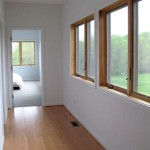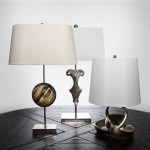Color Palette for Interior Design
A color palette is a carefully curated selection of colors that work harmoniously together to create a specific mood and aesthetic within an interior space. Choosing the right color palette is an essential step in interior design, as it directly impacts the overall feel and functionality of a room. From the warmth of a cozy living room to the refreshing energy of a modern kitchen, the power of color to influence our emotions and perceptions is undeniable.
Understanding the basics of color theory, exploring different color palettes, and considering the practical aspects of color application are all key factors in crafting an effective and impactful interior design scheme.
Understanding Color Theory
Color theory is the foundation of color palette selection. It explores the relationships between colors, their psychological effects, and how they interact in various combinations. Key concepts include:
- Hue: This refers to the pure color, such as red, blue, or green.
- Saturation: Saturation describes the intensity or purity of a color. A highly saturated color is vibrant and bold, while a desaturated color is muted and pale.
- Value: Value refers to the lightness or darkness of a color. A high value color is light, while a low value color is dark.
- Color Temperature: Colors are categorized as warm (reds, oranges, yellows) or cool (blues, greens, violets). Warm colors evoke feelings of energy and warmth, while cool colors tend to be calming and relaxing.
- Color Harmony: This refers to the pleasing arrangement of colors. Common color harmonies include:
- Analogous: Colors that are next to each other on the color wheel (e.g., blue, blue-green, green).
- Complementary: Colors that are opposite each other on the color wheel (e.g., red and green).
- Triadic: Three colors equally spaced on the color wheel (e.g., red, yellow, blue).
- Split-Complementary: A color and its two adjacent complements (e.g., red, blue-green, yellow-green).
Exploring Different Interior Design Color Palettes
The choice of a color palette depends on the desired atmosphere, personal preferences, and the architectural style of the space. Here are some common color palettes for interior design:
- Monochromatic Palette: This palette uses different shades, tints, and tones of a single color, creating a cohesive and elegant look. For example, using various shades of blue from light sky blue to deep navy blue.
- Analogous Palette: This palette uses colors that are adjacent to each other on the color wheel, creating a sense of harmony and flow. For instance, using a combination of blues, greens, and yellows for a calming and refreshing atmosphere.
- Complementary Palette: This palette uses colors that are opposite each other on the color wheel, creating a striking and dynamic contrast. For example, using red and green or blue and orange for a bold and energetic feel.
- Neutral Palette: This palette relies on neutral colors like white, black, gray, beige, and brown, offering a timeless and versatile backdrop for any style. It can be accented with pops of color for a more dynamic look.
- Nature-Inspired Palette: This palette draws inspiration from nature, incorporating earthy tones like browns, greens, and blues for a grounding and serene effect.
- Bold and Bright Palette: This palette embraces vibrant colors like reds, oranges, yellows, and purples, creating a lively and energetic atmosphere. This palette is best used in moderation to avoid overwhelming the space.
Practical Considerations for Color Application
Once a color palette is selected, it's crucial to consider practical aspects of color application, including:
- Light: Natural and artificial light affect how colors appear. Warm lighting can enhance warm colors while cool lighting can emphasize cool colors. Consider the amount of natural light the space receives and the type of artificial lighting used.
- Size and Shape of the Room: Color can influence the perception of space. Light colors tend to make rooms feel larger and brighter, while dark colors can make rooms feel smaller and cozier. Consider the size and shape of the room when choosing colors.
- Furniture and Decor: The color palette should complement existing furniture, artwork, and other decorative elements. Choose colors that create a cohesive and harmonious look.
- Personal Preferences: Ultimately, the color palette should reflect personal taste and style. Choose colors that you enjoy and that create a comfortable and inviting atmosphere.
By carefully considering color theory, exploring different palettes, and factoring in practical considerations, interior designers can create spaces that are both visually appealing and emotionally resonant. Understanding the power of color is a crucial element in crafting a successful interior design project.

Earthy Interior Paint Color Palette Singapore

9 Design Ideas For Your Home To Achieve A Green Colour Palette Nippon Paint Singapore

How To Choose The Colour Palette For Your Project Alma De Luce

Color Palette For Home 12 Combos Designers Love Havenly Interior Design Blog

Palette For Interior Design Color Ideas

Color Palette For Home 12 Combos Designers Love Havenly Interior Design Blog
What Are The Best Color Theories Of Interior Decorating Quora

Color Palette Interior Ideas Balance Bedroom Bedroomcolor Design Schemes

87 Interior Design Color Palette Ideas In 2024 Icolorpalette
:max_bytes(150000):strip_icc()/7XghHk_full2-b3835383b6924afe8d082db04ba7aad5.jpg?strip=all)
Color Palette Generators For Interior Design Schemes








